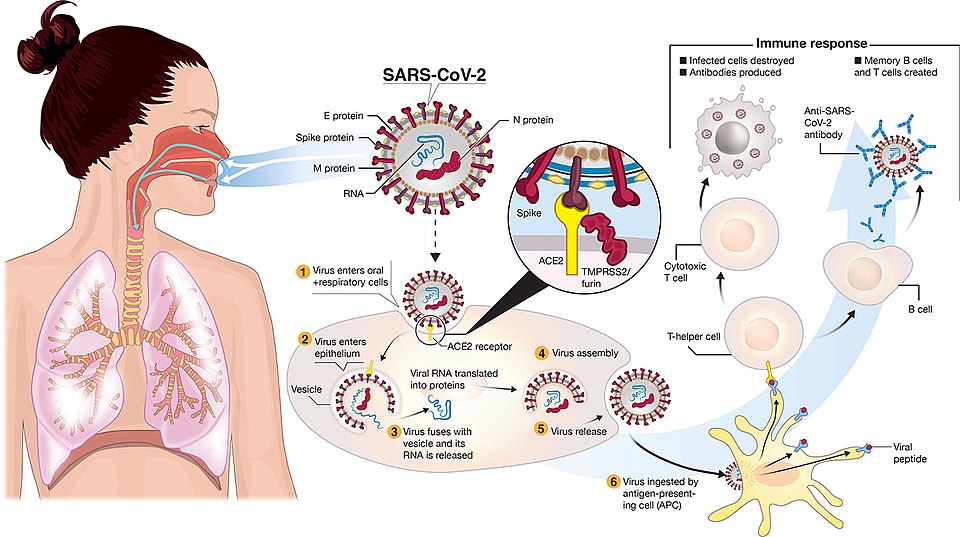Imagine a high-tech, always-on security system inside your body—one that detects invaders, responds with precision, and learns from every battle. That’s your immune system. It’s not just a collection of cells and chemical messengers—it’s a brilliantly orchestrated army built to protect you. And the best part? You don’t need synthetic potions or miracle pills to make it stronger. Nature has equipped you with tools to power up this system, and all you have to do is learn how to use them.
So how do you truly boost your immune system naturally? The answer is a blend of lifestyle choices, nutrient-rich foods, stress management, quality sleep, and body movement. But there’s more to it than just ticking off a checklist. To fully empower your immunity, you need to understand how this system works, what affects it, and how your daily decisions create a ripple effect on your long-term health.
Ready to dive deep into the science of staying well, naturally? Let’s explore.
What Is the Immune System, Really?
Before you can boost something, you have to understand it. The immune system is a complex network of organs, cells, and proteins designed to protect your body from harmful invaders—like bacteria, viruses, fungi, and even rogue cancer cells. Think of it as the ultimate surveillance and response unit.
The key players in your immune system include white blood cells, lymph nodes, the spleen, bone marrow, the thymus gland, and even your skin and mucous membranes. These components work in unison to identify threats, neutralize them, and remember them for future encounters.
Your immune system has two main arms: the innate and the adaptive. The innate system is your first responder—it reacts quickly but nonspecifically. The adaptive system is smarter and slower. It creates targeted attacks and long-term immunity. Vaccines, for example, work by training the adaptive system.
What’s fascinating is that your immune system isn’t static. It evolves, adapts, and learns, much like a muscle. And like a muscle, it thrives when nourished and crumbles under chronic abuse. So boosting your immune system isn’t about pushing a “more power” button—it’s about tuning the whole symphony to play in harmony.
Sleep: Your Body’s Natural Repair Mode
Sleep isn’t just a time of rest—it’s a critical period when your body carries out vital immune functions. During deep sleep, your body produces cytokines, a type of protein that targets infection and inflammation. Lack of sleep reduces the number of infection-fighting cells and antibodies in your bloodstream.
In fact, research shows that people who don’t get enough sleep are more susceptible to colds and flu. Just one night of poor sleep can lower immune defenses. Chronic sleep deprivation, meanwhile, creates low-grade inflammation and suppresses immune cell activity.
The sweet spot for most adults is between seven to nine hours per night. And it’s not just quantity—quality matters. Fragmented or shallow sleep doesn’t give your immune system the time it needs to recalibrate.
To improve your sleep naturally, start with sleep hygiene: turn off screens an hour before bed, avoid heavy meals late in the evening, stick to a regular bedtime, and keep your bedroom cool and dark. Even mindfulness and breathing exercises before bed can signal your body that it’s time to slow down and heal.
Nutrition: Fueling the Front Lines
Your immune cells are hungry warriors. They need constant fuel to patrol, attack, and regenerate. The food you eat is quite literally the ammunition and repair kit of your immune system. A single deficiency in key nutrients can throw your immune response out of balance.
Let’s start with the basics. Your immune system needs a steady supply of vitamins A, C, D, E, and B-complex, along with zinc, selenium, iron, copper, and omega-3 fatty acids. These nutrients support everything from antibody production to white blood cell activation.
Vitamin C is perhaps the most famous immune booster—and for good reason. It supports the function of various immune cells and enhances their ability to protect against infection. It also helps clear out old immune cells and replace them with new ones. You’ll find vitamin C in citrus fruits, strawberries, kiwi, bell peppers, and broccoli.
Zinc is crucial for the normal development and function of immune cells. It’s like a key that turns on the ignition for many immune functions. Foods rich in zinc include pumpkin seeds, chickpeas, cashews, and whole grains.
Don’t overlook the power of plant-based compounds, either. Phytochemicals—found in colorful fruits and vegetables—act as antioxidants and inflammation modulators. Berries, garlic, turmeric, and green tea are especially potent.
And yes, hydration matters. Your lymphatic system, which transports immune cells throughout your body, relies on water. So sip throughout the day. Herbal teas, especially those with ginger, elderberry, and echinacea, can offer bonus immune support.
The Gut-Immune Connection: Where Health Begins
Did you know that about 70% of your immune system resides in your gut? That’s because your digestive tract isn’t just for processing food—it’s a living ecosystem teeming with bacteria that interact with your immune cells daily.
Your gut microbiome is like a bustling city of microbes, and when balanced, it keeps your immune system alert but not overreactive. An unhealthy gut, on the other hand, can trigger chronic inflammation and reduce your resistance to infection.
Fiber-rich foods are the foundation of gut health. Think fruits, vegetables, legumes, and whole grains. These feed your beneficial gut bacteria, which in turn produce short-chain fatty acids that regulate immune responses.
Fermented foods like yogurt, kefir, kimchi, sauerkraut, and miso provide probiotics—live bacteria that help diversify your gut flora. Variety is key. Eating a rainbow of plant foods ensures a rich and resilient microbiome.
Antibiotics, while sometimes necessary, can decimate your gut bacteria. If you’ve recently taken antibiotics, rebuilding your gut with probiotics and prebiotic fiber becomes even more essential.
Stress: The Silent Immune Killer
Stress is more than an emotional response—it’s a physiological chain reaction that directly impacts your immune system. Short-term stress can sharpen your immune responses temporarily. But chronic stress acts like a slow poison, weakening your body’s defenses over time.
When you’re under prolonged stress, your body produces elevated levels of cortisol. While cortisol is useful in small doses, chronically high levels suppress immune cell production, reduce antibody responses, and increase inflammation.
This is why people under stress are more prone to getting sick, recovering more slowly, and developing inflammation-related conditions.
Natural ways to reduce stress include mindfulness meditation, deep breathing, spending time in nature, journaling, and even creative hobbies like painting or music. Laughter, too, is profoundly therapeutic—it lowers stress hormones and boosts immune function.
Exercise is another natural stress-reliever. It not only improves your mood but also circulates immune cells more efficiently throughout your body.
Move That Body: Exercise as Immune Medicine
Exercise is like fertilizer for your immune garden. Moderate physical activity enhances immune surveillance, increases the circulation of immune cells, and reduces inflammation. It also helps flush bacteria out of the lungs and airways and increases body temperature, which may help prevent infections.
But balance is important. Intense or prolonged exercise—especially without proper recovery—can actually suppress immune function. This is why professional athletes are often at higher risk of catching colds after intense competitions.
The sweet spot? About 30–60 minutes of moderate activity most days of the week. Walking, biking, swimming, yoga, and dancing are all excellent choices. Even 20-minute bouts of movement can significantly enhance immune health if done regularly.
And if you’ve been sedentary for a while, don’t panic. The immune system responds positively even to small improvements in fitness. Consistency beats intensity every time.
Sunshine and Vitamin D: Nature’s Immune Tonic
Vitamin D, often called the “sunshine vitamin,” is one of the most powerful modulators of immune function. It helps activate T-cells, which detect and destroy infected cells. Low levels of vitamin D have been linked to increased susceptibility to infections, including respiratory illnesses.
Your body produces vitamin D when your skin is exposed to sunlight. Just 15–20 minutes of sunlight on bare skin a few times a week can help maintain healthy levels, depending on your location, skin tone, and the season.
If you live in a region with limited sunlight, especially during winter, consider getting your vitamin D levels tested. Foods like fatty fish, egg yolks, and fortified milk can help, but supplements are often necessary to maintain optimal levels in low-light seasons.
Remember, vitamin D is fat-soluble, so if you’re taking a supplement, pair it with healthy fats for better absorption.
Toxin Exposure: Cleaning House for Immunity
Environmental toxins—from pesticides to heavy metals to air pollution—can suppress immune function and trigger chronic inflammation. Your body is constantly working to neutralize and eliminate these invaders, but too many toxins can overwhelm your system.
Reducing exposure starts with small, sustainable changes. Eat organic produce when possible, especially for high-pesticide crops. Filter your drinking water. Switch to natural cleaning products. Be mindful of air quality, and use indoor plants or air purifiers if necessary.
Your liver is your detox powerhouse, and it relies on nutrients like glutathione, B vitamins, and antioxidants. Cruciferous vegetables like broccoli, cauliflower, and Brussels sprouts support liver enzymes. Garlic and onions, rich in sulfur, also help detox pathways.
Sweating—through exercise or sauna—can eliminate toxins and improve circulation. Staying hydrated further assists your kidneys in flushing waste.
Immune-Boosting Herbs and Natural Remedies
Nature’s medicine cabinet is filled with immune allies. While no herb is a magic bullet, many have been used for centuries to support and modulate immune function.
Echinacea stimulates immune activity and may reduce the severity and duration of colds. Elderberry contains antioxidants and antiviral properties, particularly effective against respiratory viruses. Astragalus, a staple in traditional Chinese medicine, is known for its immune-boosting and anti-inflammatory effects.
Medicinal mushrooms like reishi, shiitake, and maitake contain beta-glucans—compounds that activate immune cells and modulate inflammation. These can be consumed in soups, teas, or supplement form.
Turmeric, with its active compound curcumin, has powerful anti-inflammatory and antioxidant effects. Pair it with black pepper for enhanced absorption.
Always consult a healthcare provider before starting new herbs, especially if you’re pregnant, nursing, or on medication.
Immune Health Through the Ages
Your immune system changes as you age. Children have developing immune systems, which is why they get sick often but also adapt quickly. Adolescents benefit from a robust immune response, but hormonal changes can cause temporary imbalances.
Adults in their prime can strengthen immunity through lifestyle, but stress and work pressures often take a toll. Seniors experience a natural decline in immune efficiency, a phenomenon known as immunosenescence. However, staying active, eating well, sleeping soundly, and staying socially connected can slow this decline.
Supporting immune health isn’t a one-size-fits-all plan. Each age and life stage brings different needs. But the foundational principles—nourishment, movement, rest, and resilience—apply universally.
Conclusion: Your Immune Destiny Is in Your Hands
Your immune system isn’t just a biological system—it’s a lifestyle-dependent, ever-evolving masterpiece of natural engineering. Every bite you take, every step you walk, every stress you manage or let go of—it all contributes to the symphony of immunity.
You don’t need expensive supplements or rigid routines. Nature has already given you the tools. Your job is to use them wisely.
Strengthen your immune system by sleeping deeply, eating vibrantly, moving often, breathing fully, laughing loudly, and living intentionally. The more you align with nature’s rhythms, the more you awaken the quiet power within you.
In a world filled with uncertainty, your best defense is already inside you.






